A series of top-level conversations on the economic, technical and scientific conditions anticipated in the future of the energy industry.
Energy Prospectives will bring together world figures recognized for their experience, vision and knowledge of the energy industry so they can share their expertise with business owners, regulators, senior managers and academics.
Don’t miss the video with the most relevant contributions and reflections from the previous edition. See video
| 09:30 | Opening session
• Prof. José Luis Suárez, Director of IESE Business School in Madrid |
| 09:45 | Workshop Energy transition, impact on the economy and the labour market• Luis de Guindos, vice-President of the European Central Bank and former Minister of Economy, Industry and Competitiveness • Christopher Pissarides, professor at the London School of Economics and Political Science. Nobel Prize in Economic Sciences, 2010 Moderator: Prof. Jordi Canals, IESE Business School |
| 11:45 | Closing
• Rafael Villaseca, Chairman of the Naturgy Foundation |
| 12:00 | Nertworking cocktail |
Simultaneous translation in English and Spanish in all sessions.
Speaker
Live Online & On Campus – IESE Madrid
Claudia Escobar
cescobar@iese.edu
IESE Industry Meetings
tel: +34 93 253 43 36
The 11 Energy Prospective will be offered simultaneously on campus, attendance only by invitation, and online.
The fees for this meeting:
Online: Free
On Campus: Exclusively by invitation
Online: Free
On Campus: Exclusively by invitation
Online: Free
On Campus: Exclusively by invitation
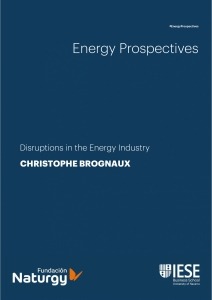
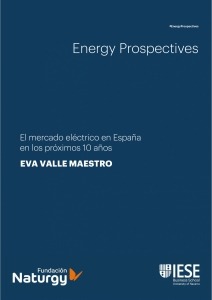
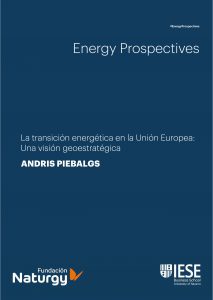
ANDRIS PIEBALGS
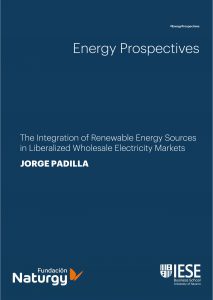
JORGE PADILLA
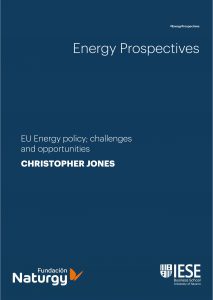
CHRISTOPHER JONES
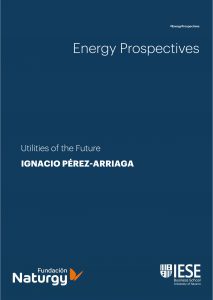
IGNACIO PÉREZ-ARRIAGA
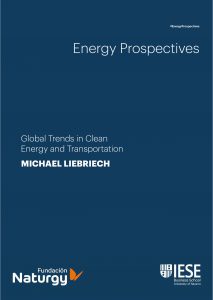
MICHAEL LIEBRIECH
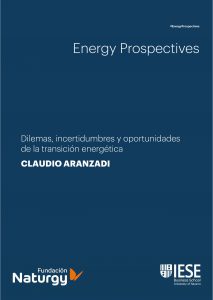
CLAUDIO ARANZADI
June 16, 2022 · Energy Prospectives – EP#10
March 17, 2022 · Energy Prospectives – EP#9
October 26, 2021 · Energy Prospectives – EP#8
June 9 de 2021 · Energy Prospectives – EP#7
March 16, 2020 · Energy Prospectives – EP#6
November 25, 2020 · Energy Prospectives – EP#5
July 14, 2020 · Energy Prospectives – EP#4
October 15, 2019 · Energy Prospectives – EP#3
June 20, 2019 · Energy Prospectives – EP#2
March 14, 2019 · Energy Prospectives – EP#1
The 26 IESE Food & Beverage Meeting under the title of “The new paradox: Finding certainty in an uncertain business environment” aims to tackle the short-term and long-term issues impacting the industry in the current moment.
The event will delve into global macroeconomic factors such as geopolitics, inflation and pricing, the consumer of the future, value chain transformation, the future of IT, and the impact of regulatory measures on the business.
It will feature expert speakers who will provide insights on these topics and share their experiences in navigating the uncertainties of the food and beverage business.
Attendees will have the opportunity to network with industry peers and gain new perspectives on how to navigate the evolving landscape of the food and beverage industry. Overall, this event promises to be an informative and engaging experience for all participants.
| 08:30-09:00 | Reception |
| 09:00-09:15 | Welcome and Opening
• Prof. Miquel Lladó, Academic Director of the Meeting, IESE Business School |
| 09:15-10:15 | Global Macro Trends: How Can We Prepare Our Companies to Face Them?
Being proactive and anticipating change in order to remain competitive and relevant are essential in a constantly evolving world and the current situation of a weak global economy in a state of increasing fragmentation. How can we prepare our companies to face these macro trends? • Ana Aguilar, Director for the Economics Service Offering, Deloitte Spain Moderator: Prof. Miquel Lladó, IESE Business School |
| 10:15-11:00 | Coffee Break |
| 11:00-12:15 | Regulation and Sustainability: Challenges and Opportunities of the Circular Economy
These challenges and opportunities are associated with guaranteeing responsible management of natural resources, reducing waste and promoting responsible production and consumption. • Josep María Bonmatí. Director General, AECOC Moderator: Enrique Domínguez, Partner responsible for the Consumer Goods and Distribution sector, Deloitte Spain |
| 12:15-13:30 | Value Chain Transformation: Challenges and Opportunities
In an uncertain environment arising from new European regulations and stiff competition in a globalized market, the Spanish pork industry is facing a scenario of major challenges and uncertainties. The pork value chain is in desperate need of transformation that will affect the livestock and meat industries. The industry’s sustainability, resilience and competitiveness must be strengthened to provide greater concentration and increased vertical integration. • Miguel Ángel Higuera, Managing director, Anprogapor Moderator: Miguel Sabater, Senior Manager co-responsible for the Food & Agri services, Deloitte Spain |
| 13:30-15:00 | Lunch |
| 15:00-16:00 | Consumers of the Future: Changing the Rules of the Game
Reflections on how consumers will be affected by transformation of value chains. • Carlos Holemans, Chief Creative Officer, Deloitte Digital Moderator: Prof. Miquel Lladó, IESE Business School |
| 16:00-17:00 | High-Impact Areas of Innovation in the Food Industry
These are times of great acceleration in food innovation and certain innovations can be highly disruptive. We’ll review the ones that can generate the most impact, such as precision nutrition, functional foods, new technologies and products, digitalization and sustainability. • José Luís Cabañero, CEO, Eatable Adventures Moderator: Guillermo Blázquez, CEO, Buhler |
| 17:00-17:30 | Break |
| 17:30-18:45 | The Impact of New Technologies: Opportunities or Challenges for the Industry
New technologies are increasingly being used in different industries, data analysis, supercomputing and cloud technology. But how will all this affect the industry? • Isaac Hernández, Country manager, Google Cloud Moderator: Prof. Sandra Sieber, IESE Business School |
| 18:45-19:00 | Final Thoughts and Closing
• Prof. Miquel Lladó, Academic Director of the Meeting, IESE Business School |
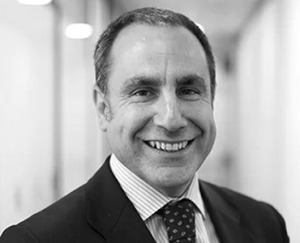
Meeting Co-organizer
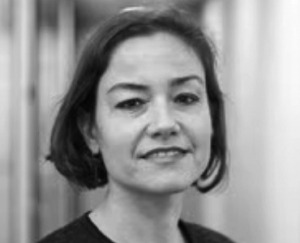
Speaker
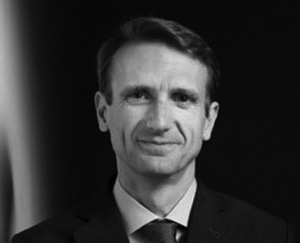
Moderator
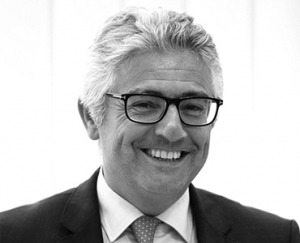
Speaker
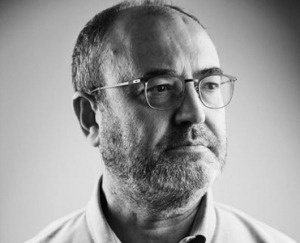
Speaker
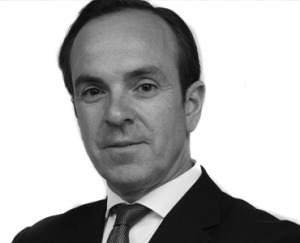
Speaker
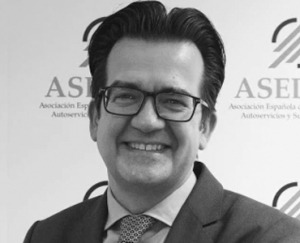
Speaker
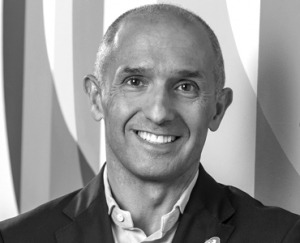
Speaker
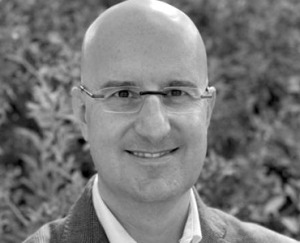
Speaker
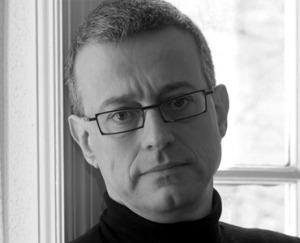
Speaker
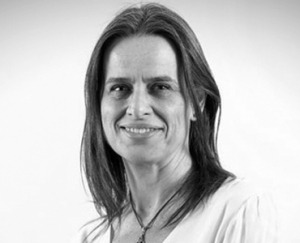
Speaker
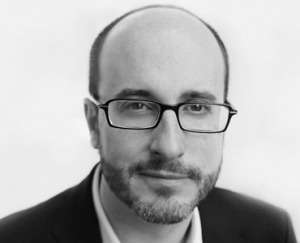
Speaker
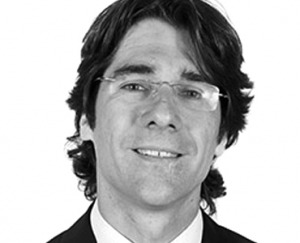
Speaker
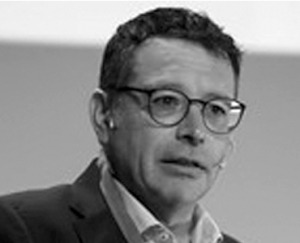
Speaker
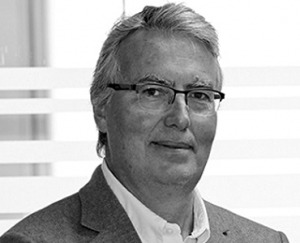
Speaker
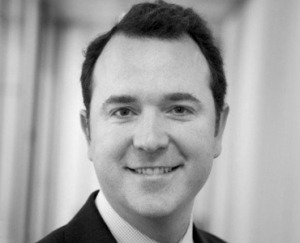
Moderator
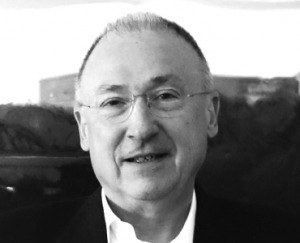
Speaker
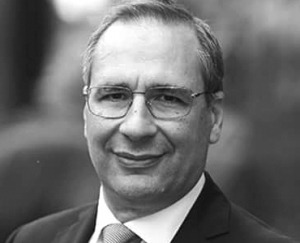
Speaker

Speaker
The 26 IESE Food & Beverage Meeting will be held on IESE Barcelona
The fees for this meeting:
On Campus: € 1,000
On Campus: € 900
On Campus: € 700
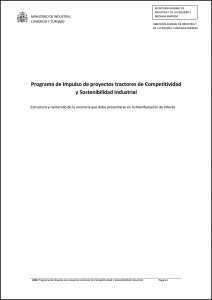
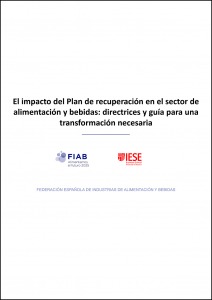
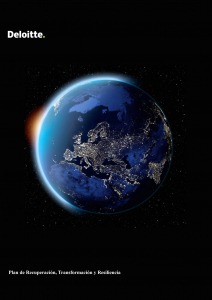

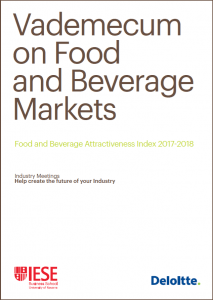
2022 · The future of the sector. Towards new balances
2021 · Post-COVID strategy and perspectives · Session June 1, 2021
2021 · Post-COVID strategy and perspectives · Session April 14, 2021
2020 · Post-COVID strategy and perspectives · Session March 8, 2021
2019 · Feeding the Future
2018 · State of Play and Future Scenarios
2017 · Sustainable Growth Strategies: Challenges and Opportunities
2016 · A Global, Creative Look at Growth, New Markets and Change
2015 · The Road to 2025 and Beyond
2014 · The Four I-Engines of the Industry
2013 · Selling Across Continents
2012 · Growth in the recession. Examples for industry and retail
2011 · In search of added value: how to get consumers, margins and competitiveness back
2010 · Food wars: counterattack brands. Rebuilding the industry’s future
The new improvements in financial regulation, banking supervision and corporate governance, together with consolidation of the sector and faster, more effective international coordination, have made financial institutions more resilient to two successive crises: those caused by the Covid-19 pandemic and Russia’s invasion of Ukraine.
The aforementioned invasion has led to unprecedented levels of inflation that have triggered a change in the European Central Bank’s monetary policy. In July 2022, a series of interest rate hikes began that, together with inflation, have tightened business margins but have not yet caused a significant increase in non-performing loans. Meanwhile, this rise in interest rates has led to the normalization of interest rates, which has resulted in improvements to banks’ income statements; the profits could help strengthen the social commitment of the banking sector, which is key to addressing the uncertain future facing society.
Banking is a non-speculative creditor of the real economy (households and companies). The banking sector constitutes a key building block in the economy of any country and governments have relied on the sector to achieve ambitious social objectives (green transition, financing of digitalization, prevention of money laundering, freezing of assets, etc.).
Currently, the banking sector has supported the government’s initiative to alleviate the increased burden on families’ mortgages resulting from the rise in interest rates, thereby creating greater stability in the share of household spending. Banks will also play a crucial role in the preventive restructuring measures set out in the new Insolvency Law, whose goal is to ensure the continuity of businesses that are viable but experiencing financial difficulties. They can play an active role that will enhance their creditor position, but they will have to maintain their capital levels and take care of provisions, a balance that could improve the selection of viable projects. Banks will be key to ensuring the continuity of viable businesses.
All of the above, plus other topical issues, will be discussed at the meeting, which will be attended by CEOs from Spanish banks and leading representatives from national and international financial institutions, academics and industry experts.
| 15:00-15:30 | Reception and registration of participants |
| 15:30-15:40 | Welcome and Introduction
• Prof. Miguel Duro, Director IESE CIF |
| 15:45-16:50 | The challenges of the European supervisory and resolution framework
Keynote speaker – Supervisory expectations • Anneli Tuominen, Supervisory Board Member, European Central Bank (ECB) Keynote speaker – Resolution challenges • Dominique Laboureix, Chair, Single Resolution Board Moderator: Mario Delgado, Partner, EY Spain |
| 16:55-17:25 | Macroeconomic challenges: inflation and growth
• Vitor Constancio, former Vice-President, European Central Bank (ECB) Moderator: Prof. Jordi Gual, IESE Business School |
| 17:30-17:50 | Coffe-Break |
| 17:50-18:20 | Banking and health: exploring the effects for financial and physical well-being
• Prof. Núria Mas, IESE Business School |
| 18:25-18:55 | Surfing Uncertainty – Comments on a Video Interview with Jamie Damon, Chairman and CEO of JPMorgan Chase&Co
• Prof. Mireia Giné, IESE Business School |
| 19:00-19:30 | Anti-Money Laundering Authority (AMLA): Madrid Candidacy
• Álvaro López Barceló, Director General del Tesoro y Política Financiera. Ministerio de Asuntos Económicos y Transformación Digital Moderator: Prof. Germán López Espinosa, IESE Business School |
| 19:30 | Spanish wine break |
| 09:00-09:15 | Welcome
• Prof. Germán López-Espinosa, Academic Director, Banking Industry Meeting, IESE Business School |
| 09:15-09:50 | Opening
• Pablo Hernández de Cos, Governor of the Bank of Spain and Chairman of the Basel Committee on Banking Supervision (BCBS) Moderator: Prof. Núria Mas, IESE Business School |
| 10:00-10:35 | Diversification and global scale: keys to growth
• Héctor Grisi, CEO, Santander Group Moderator: Prof. Gaizka Ormazabal, IESE Business School |
| 10:45-11:20 | ESG Opportunities in Banks
• Onur Genç, CEO, BBVA Moderator: Prof. Christian Eufinger, IESE Business School |
| 11:30-12:05 | Challenges in banking and energy
• Beatriz Corredor, President, Redeia Moderator: Leandro Mazón Martínez, Partner, EY Spain |
| 12:10-12:40 | Coffe-Break |
| 12:45-13:15 | Reputation in the banking industry
• María Dolores Dancausa, CEO, Bankinter Moderator: José Carlos Hernández, Partner, EY Spain |
| 13:20-13:55 | New digital banking trends
• Ignacio Juliá, CEO, ING Spain and Portugal Moderator: David Frías, Partner, EY Spain |
| 14:00-14:45 | Managing uncertainty, ensuring bank resilience
• Jacobo Díaz, CFO, Bankinter Moderator: Jaume Pallerols, Partner, EY Spain |
| 14:45-15:55 | Lunch |
| 16:00-16:30 | New growth challenges
• Juan Carlos Escotet, President, Abanca Moderator: Prof. Germán López Espinosa, IESE Business School |
| 16:35-17:10 | Technology at the service of the customer
• Ángeles Delgado, CEO, Fujitsu Moderator: Francisco Moure, Partner, EY Spain |
| 17:15-17:45 | Closing
• Luis de Guindos, Vice-President, European Central Bank (ECB) Moderator: Prof. Miguel Duro, IESE Business School |
| 17:45 | Spanish wine break |
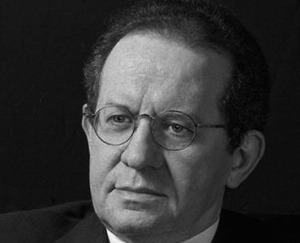
Speaker
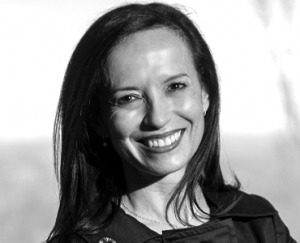
Speaker
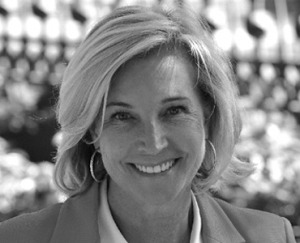
Speaker
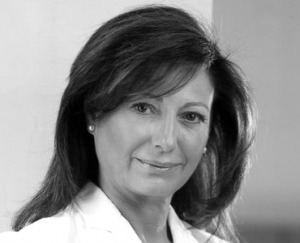
Speaker
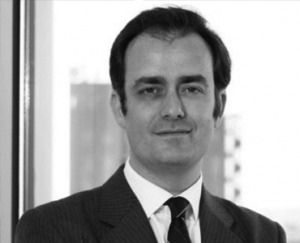
Moderator
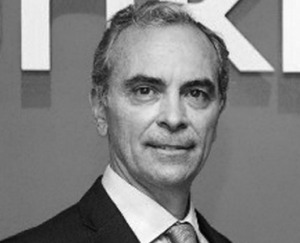
Speaker
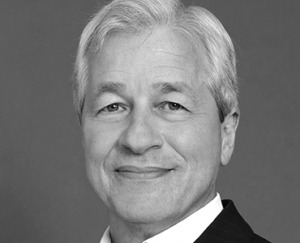
Speaker
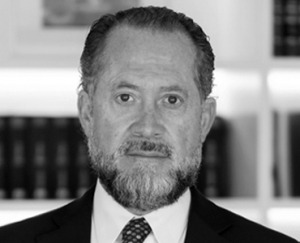
Speaker
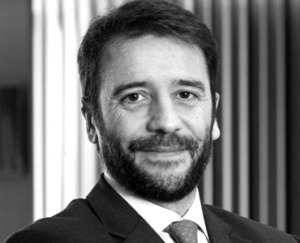
Moderator
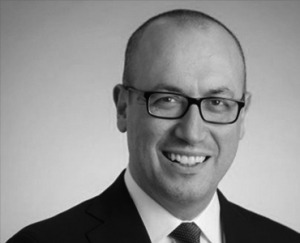
Speaker
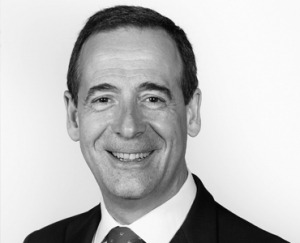
Speaker
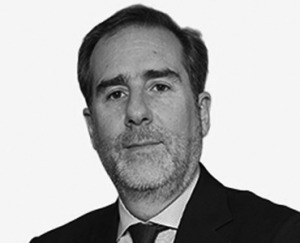
Speaker
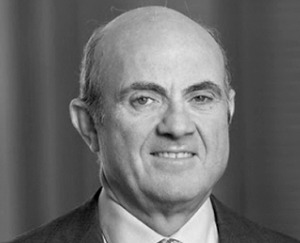
Speaker
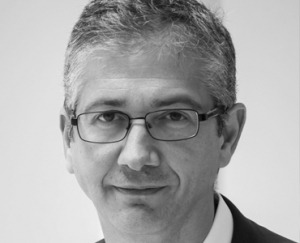
Speaker
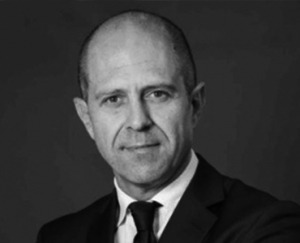
Moderator
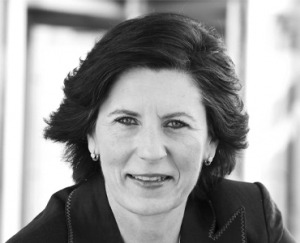
Speaker
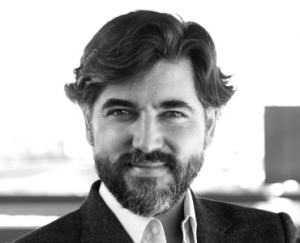
Speaker
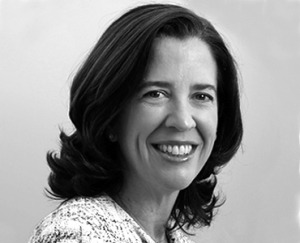
Speaker
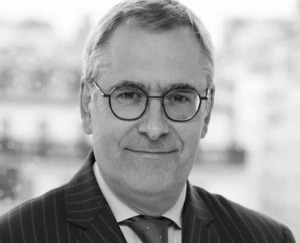
Speaker
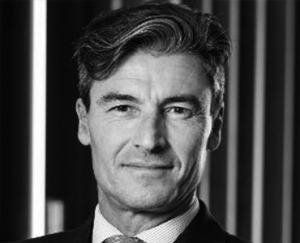
Speaker
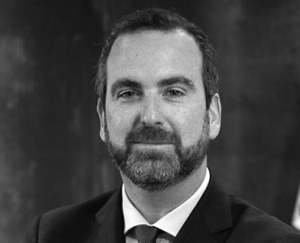
Speaker
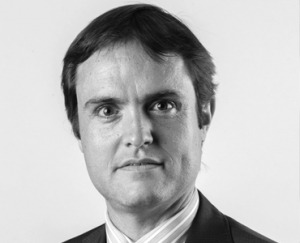
Speaker
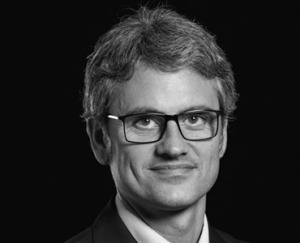
Moderator
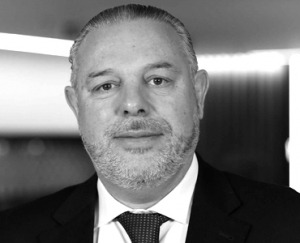
Moderator
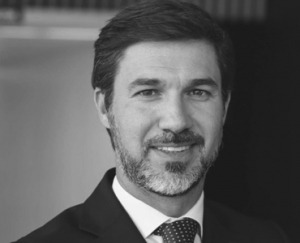
Moderator
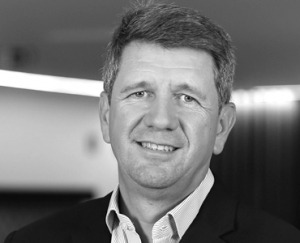
Moderator
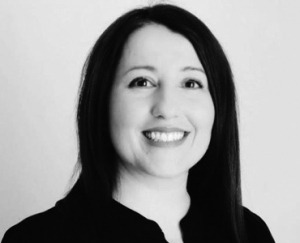
Speaker
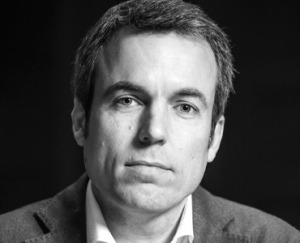
Speaker

Speaker
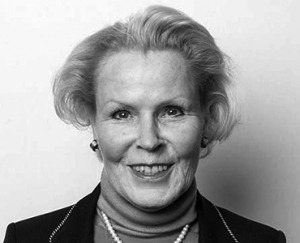
Speaker
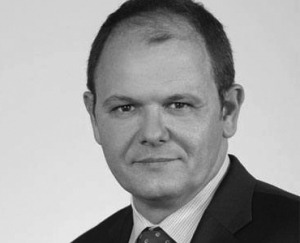
Speaker
The 18 IESE Banking Meeting will be held on IESE’s new campus in Madrid
The fees for this meeting:
On Campus: € 1,200
Online: € 400
On Campus: € 1,000
Online: € 400
On Campus: € 850
Online: Free

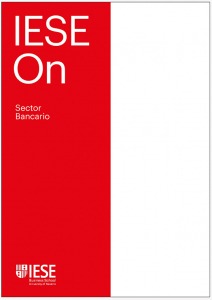
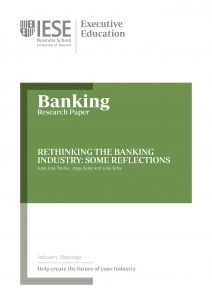
2022 · Banking: driving bold transformation
2021 · Banking: helping to boost the economy
2019 · Banking in the 2020s: Managing Growth in a Mature Industry
2018 · Reinvent Banking or Improve Bank Management?
2017 · Competitive Banking in a New Society
2016 · Banking in the future
2015 · Banking in Today’s Competitive Environment
2014 · Bank’s Role in Recovery
2013 · Banking: Beyond the Crisis
2012 · Banking: Opportunities after the Crisis
2011 · Designing the New Banking Sector
2010 · Building the Future
2008 · The Global Opportunity
2006 · Innovation and Strategies for the Growth of the Banking Sector in Europe
2004 · (September) Banking in Europe: Building the Future
2004 · (April) Technology and Geographic Space: Strategic Keys for the Banking System
The sources of uncertainty are on the rise. New sources have joined those arising from the different paradigm shifts in progress: the digital, energy and sustainability transformations. This is happening in financial markets (inflation, interest rates, appraisals) and in society (new ways of working, shopping, spending free time, demographics, ESG requirements). Even geostrategy is once again a relevant factor in decision-making.
Regardless, we have to continue making decisions and coming up with strategies in which flexibility is always a guiding principle. But we must go further and take sides in terms of products, markets and financial strategies.
Being innovative is often not just an advantage, but a necessity, especially when the next step has been uncertain and unknown for generations.
The Industry Meeting will address all these sources of uncertainty. Through joint reflection with experts on each topic, we’ll outline possible scenarios in different segments of the real estate sector and discuss coherent and effective strategies for these uncertain times.
| 09:00-09:15 | Opening
• Prof. José Luis Suárez, Academic Director of the Meeting, IESE Business School |
| 09:20-10:10 | ESG in Real Estate: Opportunities and Challenges
In the world of real estate, sustainability, social impact and green building practices have historically taken a back seat to more pressing concerns such as costs and construction. But times are changing. In response to growing investor demand, the industry has expanded to include ESG criteria in its investment processes. This topic doesn’t affect only architects, engineers and developers, who are forced to think outside the box to make their buildings more energy efficient and reduce their carbon footprint. It’s also necessary to include criteria that have an impact on people and society in investment projects and portfolios. In other words, considerable progress is being made on “E” (environmental), but there is still a long way to go on “S” (social) and “G” (governance). In this session, we’ll discuss major opportunities and challenges in the world of ESG in real estate today. • Juan José Brugera, President, Colonial Moderator: Prof. Carles Vergara, IESE Business School |
| 10:15-10:40 | Affordable Housing
• Steve Partridge, Director, Affordable Housing Consultancy, Savills London Moderator: Prof. Carles Vergara, IESE Business School |
| 10:45-11:20 | Coffee Break |
| 11:30-12:20 | Residential Real Estate: Situation and Trends
In recent years, the housing sector has gone through several upheavals. The mortgage crisis, the economic recession and the current environment of inflation and rising interest rates have all made the real estate market more competitive than ever. To stay competitive in this new climate of uncertainty, investors and companies in the industry have had to come up with innovative strategies. This has led to trends based on interesting, forward-looking housing options. In this session, we’ll study the current situation and trends in the residential real estate sector. • Juan Manuel Acosta, Managing Director Southern Europe, Greystar Moderator: Belén Dávila, Key Account Director, Tinsa |
| 12:30-13:20 | Workshops (Information at the bottom of the page)
The topics to be discussed are: 1. Real Estate Development and Build to Rent • David Martínez, CEO, AEDAS Homes Moderator: Prof. José Luis Suárez, IESE Business School 2. Valuation of Real Estate Assets in Times of Uncertainty • Juan Manuel Ortega, Chief Investment Officer, Colonial Moderator: Prof. Carles Vergara, IESE Business School |
| 13:30-14:30 | Lunch |
| 14:45-16:05 | Urban Planning with Today’s Demographics and Technology
Macro-trends are always evolving, but several of them have overlapped or increased in intensity in recent years. Many of these trends affect the design of the city and how people live there, such as the necessary infrastructure and regulations. Trends that are already having an impact on people’s lives include digital and energy transformation, demographic change, immigration, working methods (remote working is here to stay), climate change and mobility, to mention just a few. With such far-reaching changes, it is a mistake to think that cities will continue to have a similar makeup or the same “life.” Urban planning and the real estate business will have to adapt to these changes. |
| 14:45-15:10 | Interview
• Natalia Chueca, Teniente Alcalde Servicios Públicos y Movilidad, Ayuntamiento de Zaragoza Moderator: Prof. José Luis Suárez, IESE Business School |
| 15:15-16:05 | Panelists
• Andreu Huguet, Business Development Group Director, DomusVi Moderator: Prof. José Luis Suárez, IESE Business School |
| 16:15-17:35 | Capital Markets: Financing and Valuation of Real Estate Investments
The flip side of rising interest rates is reduced liquidity. How will this impact the real estate sector? How can we obtain the financing we need for the projects we have in mind? In this session, we’ll discuss debt and equity capital flowing into investment funds, the main source of equity. Higher interest rates also mean lower prices (if not offset by income). How will this affect asset value? Is it a good time to buy / sell? Do we have to wait? |
| 16:15-16:40 | Online connection – Macro vision
• Axel Christensen, Chief Investment Strategist for Latin America, BlackRock Moderator: Prof. Carles Vergara, IESE Business |
| 16:45-17:35 | Panelists
• Roberto Cibeira, CEO, Pontegadea Moderator: Susana Rodríguez, Chief Commercial Officer, Savills |
| 17:45 | Closing |
On-campus participants will be distributed in two groups that will debate two topics of the program. When registering, you can indicate your workshop preference. The organization will assign participants to the groups in order of registration based on the capacity limit. The conclusions of each workshop group will be presented to all participants in the final phase of the workshop.
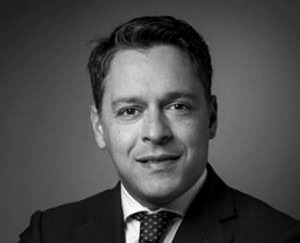
Speaker
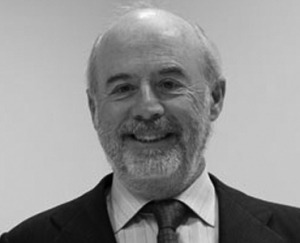
Speaker
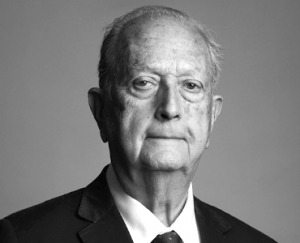
Speaker
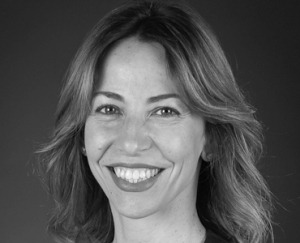
Speaker
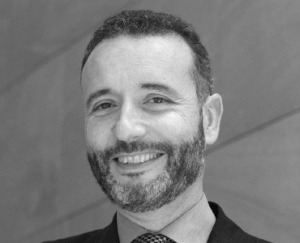
Speaker
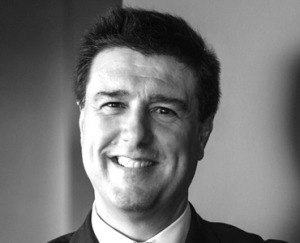
Speaker
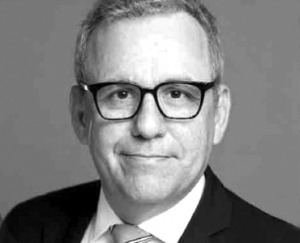
Speaker
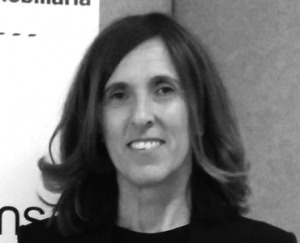
Moderator
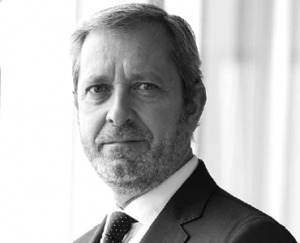
Speaker

Speaker
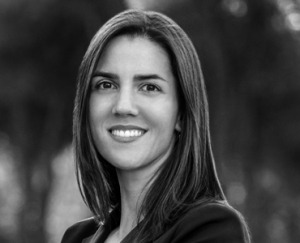
Speaker
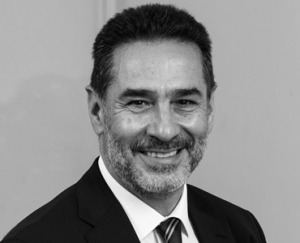
Speaker
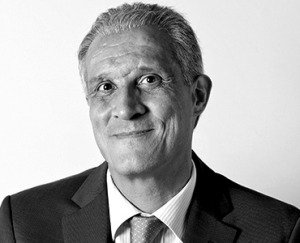
Speaker
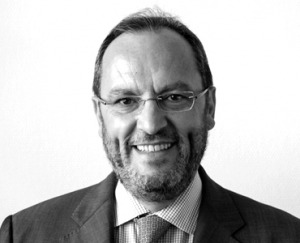
Speaker
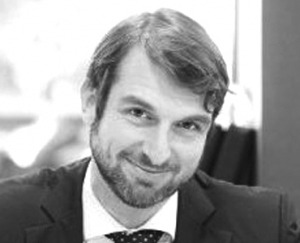
Speaker
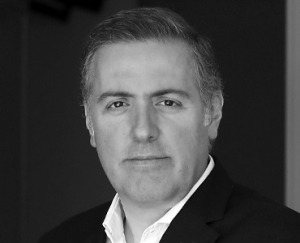
Speaker
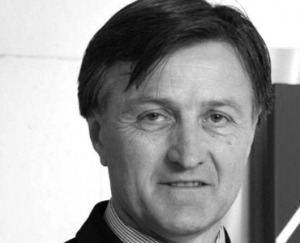
Speaker
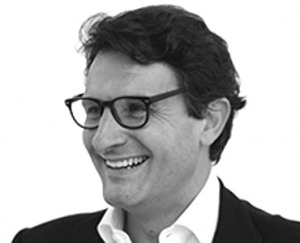
Speaker
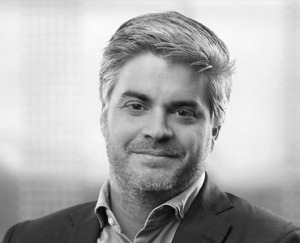
Speaker
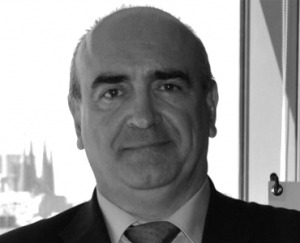
Speaker
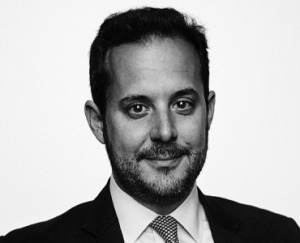
Speaker
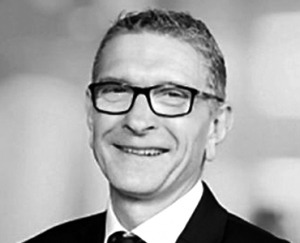
Speaker

Speaker
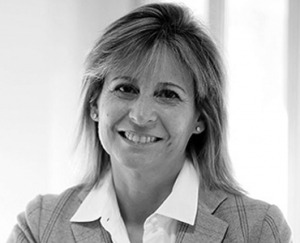
Speaker
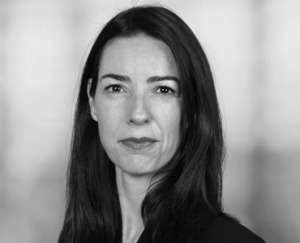
Moderator
The 9 Real Estate Meeting will be held on IESE’s new campus in Madrid
The fees for this meeting:
On Campus: € 1,000
Online: € 400
On Campus: € 900
Online: € 400
On Campus: € 700
Online: Free
2022 · Building social sustainability
2021 · The art of evolving
2020 · Real Estate in a Changing Society
2019 · The New Normal in Real Estate
2018 · Where Are We in the Real Estate Cycle
2017 · Real Estate and Society
2016 · The Renovation of the Real Estate Industry in Spain
Our understanding of mobility is changing: for almost a century, it was centered on the automobile. This is changing: the car is but one of many elements of our mobility mix, ranging from trains, buses, and airplanes to tramways, metros, shared bicycles, scooters and more. At the same time, technology that is powering this new world of mobility is changing: from the long dominant ICE to hybrid, battery- or hydrogen-powered. Global supply chains that contribute necessary raw materials, components or finished products are in a state of flux, with some companies contemplating reshoring or changing their manufacturing footprint due to significantly increased geopolitical tensions. Across all these dimensions the war for talent, which in some regions is becoming rather scarce, is continuing.
More than ever before it is difficult to make reliable predictions about the future of mobility, a basic human need and core element of our global, regional and local economy.
At this year’s 37th edition of our annual meeting, we will discuss the current challenges in the mobility ecosystem, with the automotive industry at its core. Continuing with our tradition, we hope to shed some light on mobility-related questions while also addressing the “classic” questions relating to the Spanish, European and global markets. In doing so, we will continue our tradition of providing a premier platform for senior executives from the mobility sector, industry experts and leading academics to exchange ideas about the future of mobility.
| 14:45 – 15:00 | Welcome |
| 15:00-15:30 | Introduction
• Prof. Marc Sachon, Chairman IESE Mobility, IESE Business School |
| 15:30-16:45 | Geopolitics and Industry
We’re facing a very complex and uncertain global geopolitical situation that is affecting all sectors of the economy. The automotive industry is no stranger to this global situation of geopolitical uncertainty, changing trends in interest rates and inflationary tensions. The effects on manufacturing, the supply chain, raw materials, the evolution of demand and forecasts for sales and exports are just as uncertain. With the help of industry experts, we’ll analyze the transformation of the automotive industry, how it has been impacted and revamped by the geopolitical situation, and the risks and opportunities that lie ahead. • Marc Riera, President, Future Fast Forward Moderator: Jordi Llidó, Partner in charge of the Automotive and Manufacturing Sector, Deloitte Spain |
| 16:45-17:15 | Coffee-Break |
| 17:15-18:30 | Energy and Mobility
Our understanding of mobility is changing, and it is not yet clear what will be the mobility mix in the future (trains, planes, cars, scooters, bicycles – owned, rented, shared)? At the same time, technology keeps on changing and regulation is narrowing the playing field: the planned end of the combustion engine in Europe and the shift towards e-mobility is coupling automotive and electric energy, sectors that evolved independently for more than a century. This allows for interesting discussions and we are looking forward to what two key players have to say. • Timo Bütefisch, CEO, Cooltra Moderator: Prof. Marc Sachon, IESE Business School |
| 18:30-18:45 | Workshop Coffee Break |
| 18:45-19:45 | Workshop (Information at the bottom of the page)
Workshop 1: Geopolitics and Industry Workshop 2: Energy and Mobility Workshop 3: Talent in the World of New Mobility Workshop 4: Technology / New Mobility Models |
| 19:45-20:20 | Workshop conclusions aula magna |
| 20:20-22:00 | Mobility Tapas |
| 09:45-10:00 | Welcome and Debriefing on Previous Day
• Prof. Marc Sachon, Chairman IESE Mobility, IESE Business School |
| 10:00-11:30 | Talent in the World of New Mobility
In several recent conversations with top decision makers of industrial companies and organizations the topic of talent shortage has come up. How can industry address this challenge? More importantly, how can the automotive industry address this challenge while also moving from ICE to BEV and its implications of required qualification profiles? To answer these questions we have invited executives from a top premium OEM and one of the largest automotive suppliers in the world. • Xavier Ros, CHRO, Audi Moderator: Prof. Marc Sachon, IESE Business School |
| 11:30-12:00 | Coffee Break |
| 12:00-13:15 | Technology / New Mobility Models
More than ever before it is difficult to make reliable predictions about the future of mobility across all dimensions of its increasingly complex ecosystem. For almost a century, it was centered on the automobile. With the coupling of electricity, automotive, and large infrastructure players (to name just a few key sectors) the center of gravity is shifting. How will these changes and technology impact mobility and the key sectors involved? What will be the future business models? All of this will be discussed by leading experts ranging from commercial vehicles, super spots cars and technology leaders. • Hakan Schildt, SVP, Traton Moderator: Marc Sachon, IESE Business School |
| 13:15-13:30 | Closing |
On-campus participants will be distributed in two groups that will debate two topics of the program. When registering, you can indicate your workshop preference. The organization will assign participants to the groups in order of registration based on the capacity limit. The conclusions of each workshop group will be presented to all participants in the final phase of the workshop.
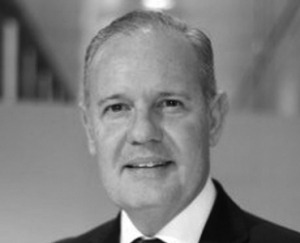
Co-organizer of the meeting
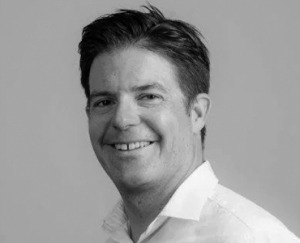
Speaker
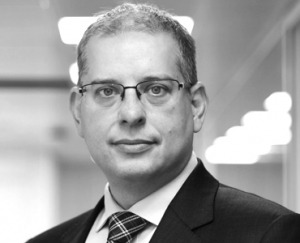
Speaker

Speaker
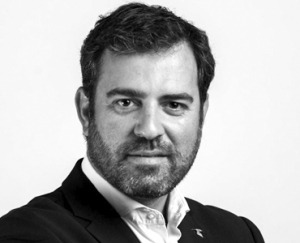
Speaker
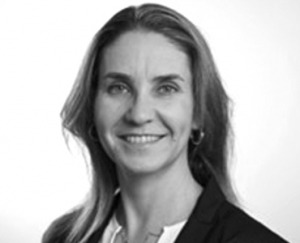
Speaker
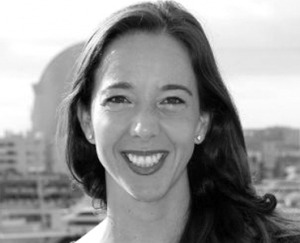
Speaker
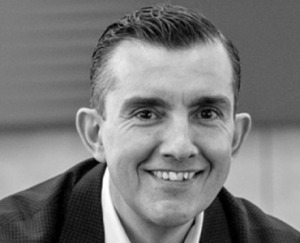
Speaker
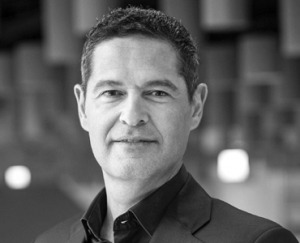
Speaker
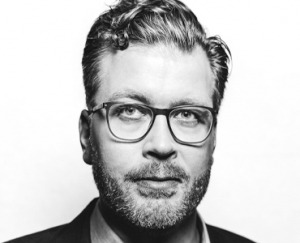
Speaker
The 37 IESE Mobility Meeting will be held on IESE Barcelona
The fees for this meeting:
On Campus: € 1,000
Online: € 400
On Campus: € 900
Online: € 400
On Campus: € 700
Online: Free
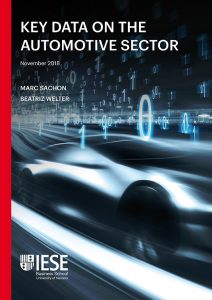
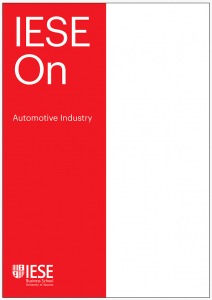
2022 · Genesis
2021 · A new world · Session May 5-6, 2020
2020 · A new world · Session November 3, 2020
2019 · Diversity: Technology, Ecosystems & People
2018 · Back to the future
2017 · The age of turbulence
2016 · The Battle of Automotive
2015 · The Next 30 Years
2014 · Why Automobile
2013 · Two worlds, two speeds?
2012 · Tectonic Shifts
2011 · Megatrends in the Automotive Industry
2010 · Reinventing the Industry
2009 · The Automotive Industry in 2020
2008 · The Automotive Industry in the 2010’s: The Critical Decade?
2007 · Managing Global Uncertainty
2006 · Sustainability of the Automotive Industry in Europe
2005 · Competition and Cooperation
2004 · Back to Basics
2003 · Looking to the Future with Imagination
2002 · Competing Out of Confusion
2001 · Tightening the Screws
2000 · Consequences of Consolidation
1999 · Gods, Tombs, Brands and Experts
1998 · Another Call for Attention
1997 · Entering the 21st Century: The New Trends
1996 · East and West, the Challenge for Europe
1995 · Balance, Present and Future
1994 · How to Face the Recovery?
1993 · Where are we Going?
1992 · The End/Beginning of the Countdown
1991 · Building Up from the Crisis
1990 · Learning Organizations, Change and Innovation. Routines of the 90’s
1989 · A Call for Attention
1988 · Towards 1992: Single Market Consolidation
1987 · The Value-Added Chain in the Automotive Sector
1986 · The Future of the Automotive Sector
The increase in the disease burden and on healthcare costs were the seeds for the growth of care from home services and the COVID-19 pandemic acted as a catalyst to dramatically transform the future of care. This change has been made possible by a wave of technology innovation lead by telemedicine, remote patient monitoring devices, self-administered tests, digital therapeutics, artificial intelligence and data analytics which are reshaping the sector worldwide and making care at home possible for more people.
Healthcare from home offers great opportunities to improve patient´s experience, reduce healthcare costs and give doctors more time to devote to their patients, but which is the right business model for home care?
How can health from home create more value for all? How can we get it right? When is it the right solution? What does it mean for the industry? What is next in the interface of technology and medicine? How will it reshape the future of our healthcare systems? Which types of partnerships should we consider not to be left behind?
Under the lemma “Home is the new hospital” the 29th IESE Healthcare will reflect on the key new trends in technologies and business models and how they will reshape the healthcare of the future. It will also bring together top experts from the sector to think about how the different agents in healthcare can work together to continue building a healthier society while leveraging the enormous potential of technology.
| 08:45-09:00 | Reception and registration of participants |
| 09:00-09:30 | Welcome and Opening
• Carlos Sisternas, Director, Fenin Cataluña |
| 09:30-10:00 | Global Economic Outlook and the Revolution of Home Care
• Prof. Núria Mas, Jaime Grego Chair of Healthcare Management, IESE Business School |
| 10:00-11:00 | How Can We Be Reimbursed for Digital Healthcare?
• Liz Ashall-Payne, Chief Executive Officer at ORCHA Moderator: Prof. Núria Mas, Jaime Grego Chair of Healthcare Management, IESE Business School |
| 11:00-11:30 | Break |
| 11:30-12:30 | The Hospital of the Future
• Dr. Josep M.ª Campistol, Director General, Hospital Clínic Moderator: Cristina Fuertes Sierra, Manager Lifescience&Healthcare, Deloitte Spain |
| 12:30-13:30 | Workshop (Information at the bottom of the page)
The topics to be discussed are: TOPIC 1: Value-Based Healthcare TOPIC 2: ESG in Health |
| 13:30-14:45 | Lunch |
| 14:45-15:15 | Presentation of Workshop Conclusions |
| 15:15-16:15 | The Innovation Challenge
• Jordi Carrera, CEO, deepull Moderator: Óscar Menéndez, Lifescience & Healthcare Partner, Deloitte Spain |
| 16:15-16:35 | The European Health Data Space (EHDS)
• Ray Pinto, Senior Director for Digital Transformation Policy, DigitalEurope Moderator: Prof. Núria Mas, Jaime Grego Chair of Healthcare Management, IESE Business School |
| 16:35-16:50 | Break |
| 16:50-17:55 | ESG in Healthcare Companies
• Pablo Pérez-Montero, Head of Sustainable Finance & ESG Advisory, CaixaBank Moderator: Fabrizio Ferraro, IESE Business School |
| 17:55-18:15 | Final Thoughts
• Prof. Núria Mas, Jaime Grego Chair of Healthcare Management, IESE Business School |
| 18:15 | Closing
• Manel Balcells i Díaz, Minister of Health of the Government of Catalonia |
On-campus participants will be distributed in two groups that will debate two topics of the program. When registering, you can indicate your workshop preference. The organization will assign participants to the groups in order of registration based on the capacity limit. The conclusions of each workshop group will be presented to all participants in the final phase of the workshop.
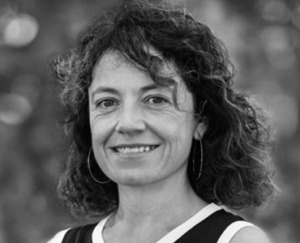
Academic Director

Coorganizer of the Meeting
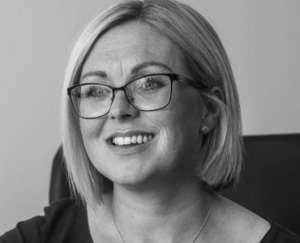
Speaker
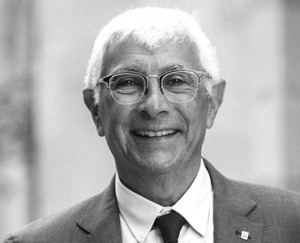
Speaker
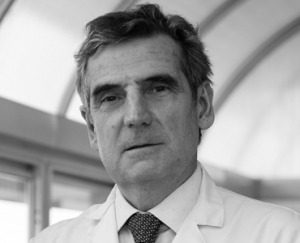
Speaker
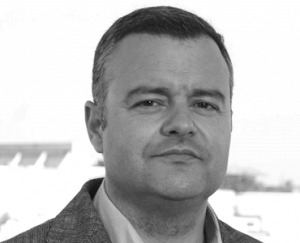
Speaker
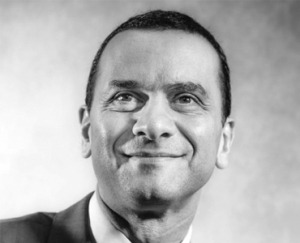
Speaker
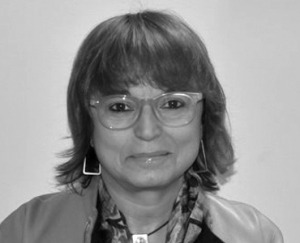
Speaker
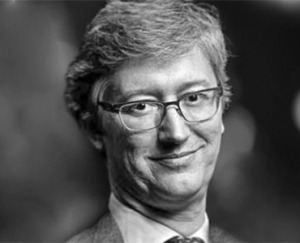
Moderator

Moderator
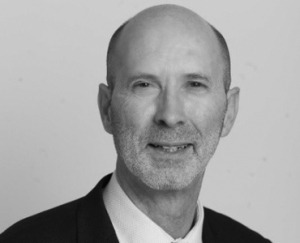
Speaker
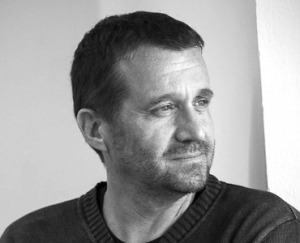
Speaker
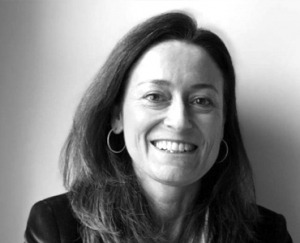
Speaker
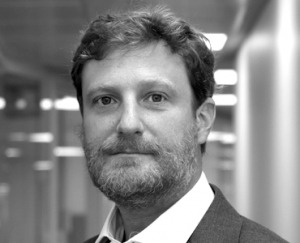
Moderator

Speaker
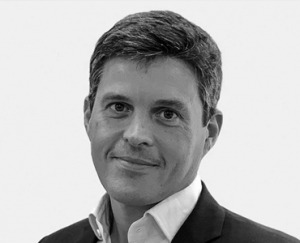
Speaker
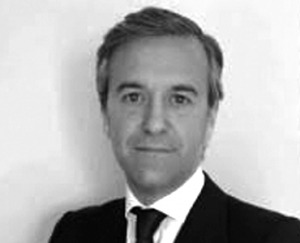
Speaker
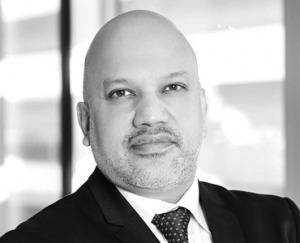
Speaker

Speaker

Speaker

Speaker
The 29 IESE Healthcare Meeting will be held on IESE Barcelona
The fees for this meeting:
On Campus: € 1,000
Online: € 400
On Campus: € 900
Online: € 400
On Campus: € 700
Online: Free
2022 · Byte-Medicine: the revolution of the convergence of technology and medicine
2021 · Life sciences: the engine for the recovery after COVID-19
2019 · Rising to the Challenge: Healthcare First
2018 · Working for a healthy society
2017 · Building a Sustainable Healthcare Model
2016 · Towards Value-Based Healthcare
2015 · Innovation for the New Healthcare Era
2014 · Propelling Change
2013 · Making Patient-Centric Care Happen
2012 · Value Creation and Value Sharing
2011 · Toward a Change of Model
2010 · The Healthcare Industry in 2020
2009 · Toward a New Model of Industry (Pharma) / Recognizing Value (Healthcare)
2008 · Betting on the Sector (Pharma) / Innovating With Responsibility (Healthcare)
2007 · The Global Opportunity
2006 · Contributing More (Pharma) / The Value of Technology (Healthcare)
2005 · Healing Under Pressure
2004 · Rethinking Health
2003 · Health Technologies and the Management of Health Budgets
2002 · Key Variables for Consideration
2001 · Whither the Spanish Health System?
2000 · The Market for Medical Devices in the European Union
1999 · New Millennium, New Challenges
1998 · Health Reform in Practice: New Ways to Buy and Sell
1997 · Economic Limits of Health Since 1998
1996 · Spanish Health: Reality, Change and Adjustment
1995 · Present and Future
1994 · Building From the Crisis
With the humanitarian drama playing out in Ukraine, Europe has discovered that it is vulnerable and threatened. Energy, food, science, technology and raw materials are no longer shared in a market whose global reach is shrinking. Europe has no plans to survive in a world other than one of its own design, but reality has suddenly become a problem.
The Energy Transition (ET) must continue to be a beacon that guides and drives our decision-making, not to mention an effective instrument for tackling some of the challenges faced by Europe. For proper development of the ET, it is vital to remove the obstacles and barriers that prevent the massive deployment of mature, competitive technologies such as wind, solar and hydroelectric electricity, as well as low-temperature geothermal and aerothermal energy. There is also a need for stable regulation of the sector to encourage entrepreneurship.
Do we have suitable technologies and are they mature enough to achieve the ET? How can we make this necessary goal compatible with maintaining the competitiveness of our industry and services? How will all this affect household disposable income and how it is distributed? Do we have a national and European strategy for science, technology, industry and procurement?
To gain the speed we need for steady progress with this colossal transformation, we must reflect on social, economic and geopolitical externalities so that we are aware of all their implications.
It is therefore urgently necessary to focus on the Energy Transition. It’s in danger!
| 14:30-15:00 | Registration |
| 15:00-15:15 | Welcome
• Prof. Juan Luis López Cardenete, Academic Director of the Meeting, IESE Business School |
| 15:15-16:00 | Opening
• Teresa Ribera, Spanish Deputy Prime Minister and Minister for the Ecological Transition and the Demographic Challenge. Moderators: |
| 16:00-17:15 | New critical types of dependence. Scientific, technological, industrial, mineral and logistical: Do we have a plan?
• Eloy Álvarez Pelegry, Royal Academy of Engineering Moderator: Oliverio Álvarez, Deloitte Spain |
| 17:15-18:00 | Coffee-Break |
| 18:00-18:50 | Traditional critical types of dependence. Hydrocarbons and uranium: How long will we need to source them? From whom, in what quantities and at what cost? Cost and risk minimization strategies.
• Javier Contreras, CEO, Nortegas Moderator: Ana Sánchez Palacios, Deloitte Spain |
| 18:50-19:20 | Geopolitics. Is trade globalization that excludes autocracies viable within Europe? How can we protect ourselves from their arbitrary actions?
• Florentino Portero, Senior International Policy Analyst, CIVISMO Foundation Moderator: Prof. Juan Luis López Cardenete, IESE Business School |
| 19:20-20:20 | Finance. The end of monetary expansion and access to capital markets: a critical resource for an industry intensive in physical assets.
• Juan Caño, Executive Director, MACQUARIE Moderator: Jaume Pujol, Deloitte Spain |
| 20:20-20:30 | Closing
• Prof. Juan Luis López Cardenete, IESE Business School |
| 09:30-09:45 | Welcome and Registration |
| 09:45-10:30 | Technology. Regulatory neutrality and the role of technology centers. Successful models.
• Luis Cabra, EMD Energy Transition, Technology, Institutional Affairs & Deputy CEO, Repsol Moderator: Prof. Massimo Maoret, IESE Business School |
| 10:30-11:30 | Critical infrastructure. Europe’s physical and institutional structure.
• Rodrigo Costa, Chairman/CEO, REN (Redes Energeticas Nacionais) Moderator: Oliverio Álvarez, Partner, Deloitte Spain |
| 11:30-12:15 | Coffee-Break |
| 12:15-13:10 | Public Opinion and Politics. Companies as instruments loyal to society. The need to involve different stakeholders. Social license.
• Carlos Holemans, Chief Creative Officer, Deloitte Spain Moderator: Prof. Juan Luis López Cardenete, IESE Business School |
| 13:10-14:00 | Industry, decarbonization and competitiveness. Sustainable carbon cycles: Can Algeria and the North Sea countries become industrially competitive?
• Vicente Cortés Galeano, Professor and President, Inerco Corporation |
| 14:00-14:30 | Nuclear. When will the anticipated closure plan for 2027 to 2032 be reviewed? The role of this option in the 30-year outlook.
• Claudio Aranzadi, Former Minister of Industry and Energy Moderator: Prof. Massimo Maoret, IESE Business School |
| 14:45-16:00 | Lunch |
| 16:00-16:45 | Firm and flexible markets. The future of electricity markets: The beginning of the end of the marginal pricing system?
• José Casas, Executive Vice President Institutional Affairs and Regulatory Iberia Moderator: Laureano Álvarez, Deloitte Spain |
| 16:45-18:00 | Energy markets. A long-term critical horizon for risk management on demand and supply sides. Necessary regulatory reforms.
• Carmen Becerril, President, OMI Group Moderator: Pedro Mejía, Former Secretary of State and Former OMI Group President |
| 18:00-18:15 | Closing
• Prof. Juan Luis López Cardenete, IESE Business School |
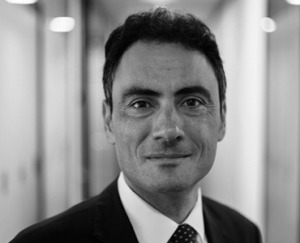
Coorganizer of the Meeting
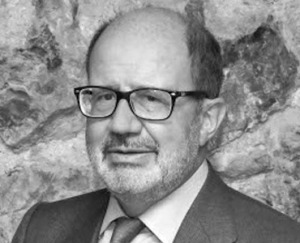
Speaker
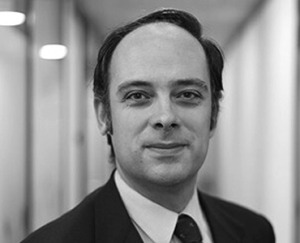
Moderator
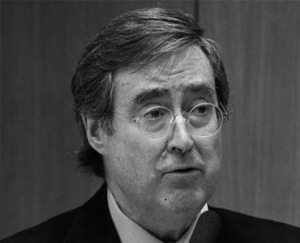
Speaker
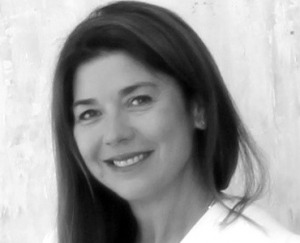
Speaker
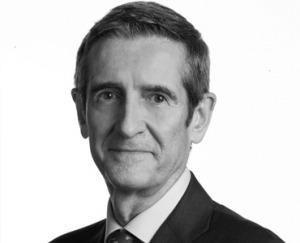
Speaker
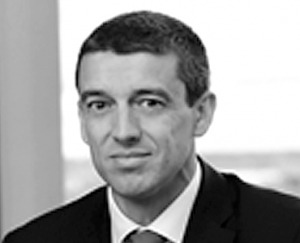
Speaker
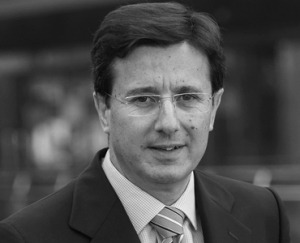
Speaker
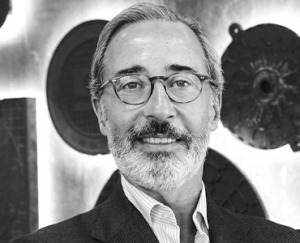
Speaker
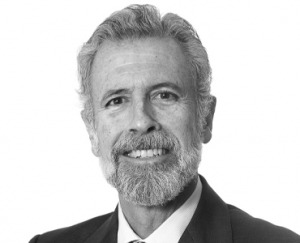
Speaker
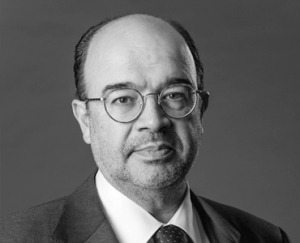
Speaker
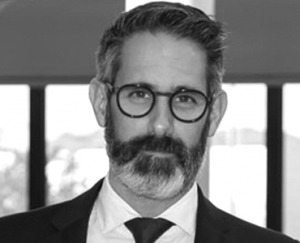
Speaker
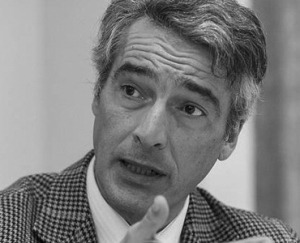
Speaker
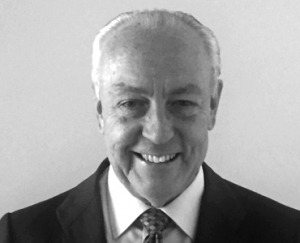
Speaker
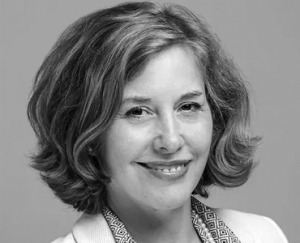
Speaker
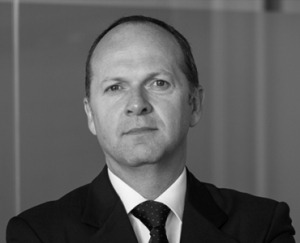
Speaker
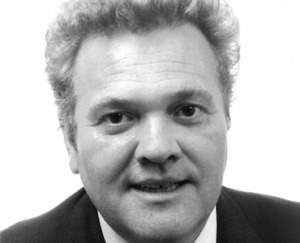
Speaker
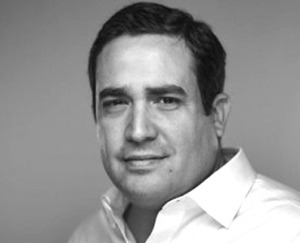
Speaker

Speaker
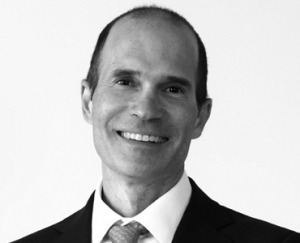
Speaker
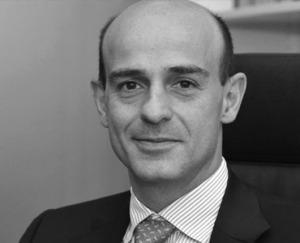
Speaker
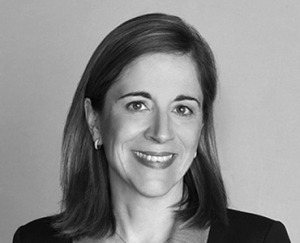
Speaker
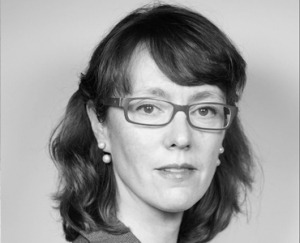
Speaker
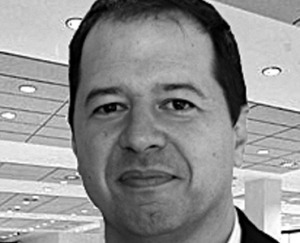
Speaker
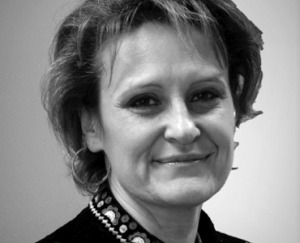
Speaker
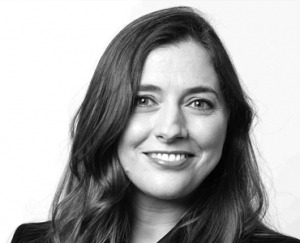
Speaker
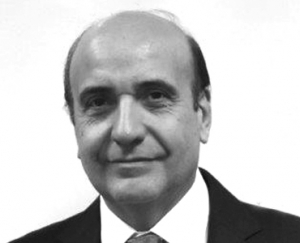
Speaker
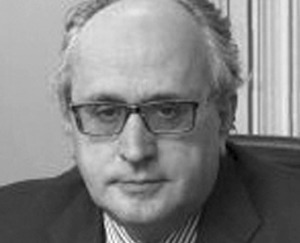
Moderator
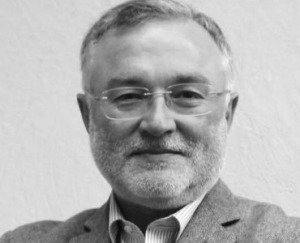
Speaker
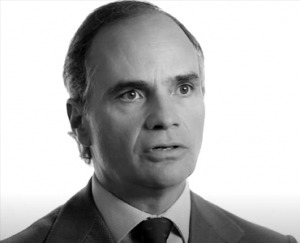
Speaker
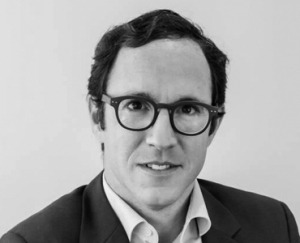
Speaker
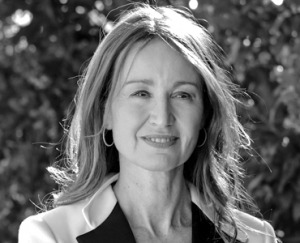
Speaker
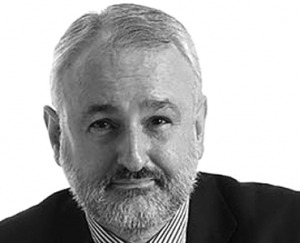
Speaker
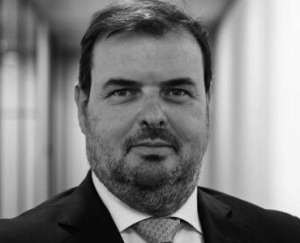
Moderator
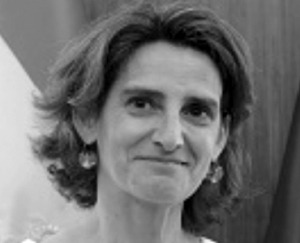
Speaker
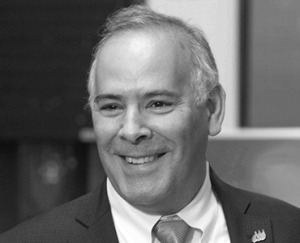
Speaker
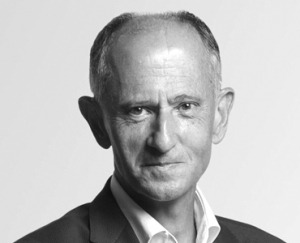
Speaker
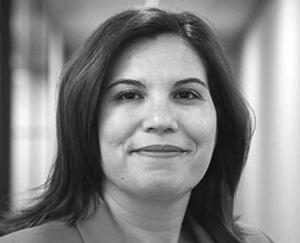
Moderator
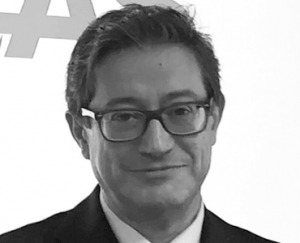
Speaker
The 20 IESE Energy Meeting will be held on IESE’s new campus in Madrid
The fees for this meeting:
On Campus: € 1,200
Online: € 400
On Campus: € 1,000
Online: € 400
On Campus: € 850
Online: Free

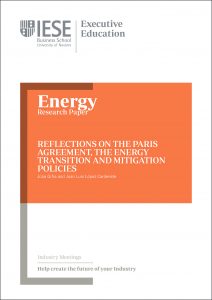
2022 · Energy Transition: Towards a Holistic Strategy
2021 · The post-COVID Energy Transition: same goals, different policies
2020 · An Industry in Transition
2019 · Dimensions for an Effective Energy Transition
2018 · Game changers in the Global Energy System
2017 · Energy Architecture in Transition
2016 · Human Well-being, Growth and Energy Access: New Governance for a Unique Challenge
2015 · The Future of Energy: Who Calls the Shots?
2014 · Quo Vadis, Europe? Shedding Light on an Energy Policy beyond the Electrical Sector Reform
2013 · A New Energy Policy as a Global Paradigm Shift Emerges
2011 · The Impact of the Energy Policy on the Sector’s Competitiveness
2009 · A Debate on the Spanish Energy Sector
2004 · Energy Liberalization and Consolidation in Europe
2002 · A Shift Towards the Convergence of Energy Markets
2000 · Mergers and Strategic Alliances: The Creation and Conquest of the Future
Click here to add your own text

A series of top-level conversations on the economic, technical and scientific conditions anticipated in the future of the energy industry.
Energy Prospectives will bring together world figures recognized for their experience, vision and knowledge of the energy industry so they can share their expertise with business owners, regulators, senior managers and academics.
| 09:30 | Opening session
• Prof. José Luis Suárez, Director of IESE Business School in Madrid |
| 09:45-11:45 | Workshop: Visions of the energy transition: California and Europe
• Klaus-Dieter Borchardt, Former Deputy Director General for Energy. Senior Energy Advisor at the European & Competition Law Practice in the Baker McKenzie Brussels office Moderator: Prof. Xavier Vives, IESE Business School |
| 11:45-12:00 | Close
• Rafael Villaseca, Chairman of the Naturgy Foundation |
| 12:00 | Nertworking cocktail |
Simultaneous translation in English and Spanish in all sessions.
Speaker
Live Online & On Campus – IESE Madrid
Claudia Escobar
IESE Industry Meetings
tel: +34 93 253 43 36
The 10 Energy Prospective will be offered simultaneously on campus, attendance only by invitation, and online.
The fees for this meeting:
Online: Free
On Campus: Exclusively by invitation
Online: Free
On Campus: Exclusively by invitation
Online: Free
On Campus: Exclusively by invitation


ANDRIS PIEBALGS

JORGE PADILLA

The Naturgy Foundation and IESE have launched Energy Prospectives, a series of top-level conversations on the economic, technical and scientific conditions anticipated in the future of the energy industry.


Will EU reach deep decarbonization goals? Energy Prospectives seminar maps out course for cutting emissions in Europe.

CLAUDIO ARANZADI

The Naturgy Foundation and IESE have launched Energy Prospectives, a series of top-level conversations on the economic, technical and scientific conditions anticipated in the future of the energy industry.
March 17, 2022 · Energy Prospectives – EP#9
October 26, 2021 · Energy Prospectives – EP#8
June 9 de 2021 · Energy Prospectives – EP#7
March 16, 2020 · Energy Prospectives – EP#6
November 25, 2020 · Energy Prospectives – EP#5
July 14, 2020 · Energy Prospectives – EP#4
October 15, 2019 · Energy Prospectives – EP#3
June 20, 2019 · Energy Prospectives – EP#2
March 14, 2019 · Energy Prospectives – EP#1
In the wake of the humanitarian drama in Ukraine, geopolitics and energy have now become one of our main concerns. Today, we are reminded of Stefan Zweig’s words about the end of the world of yesterday and the dawn of a new, uncertain era. Europe has been baffled by its vulnerability in terms of geopolitics, energy and other critical commodities.
The Energy Transition was already a real force in global geopolitics for technological and industrial leadership, but must now address security of supply and competitiveness. In both cases, the Energy Transition can help, but must urgently be handled from scientific, techno-industrial and mining perspectives, all of which have been overlooked to some extent.
The first session will focus on industry and its competitiveness in the new geopolitical and energy context. According to Eurostat, industry accounts for 16.3% of Spanish GDP, compared to 17.6% in the EU and 23.6% in Germany. At the same time, an intra-European shift towards a New Hanseatic League is taking place to the detriment of Southern EU countries.
In the second session, potential evolution of the competitiveness of Spanish industry over the medium term (2025-2030) will be analyzed according to potential frameworks for the evolution of prices of CO2, natural gas and electricity, as well as new energy vectors such as hydrogen. This competitiveness will be analyzed by taking into account the different markets where our industry competes, many of which are expected to have lower energy and CO2 costs than those anticipated in Europe. Finally, we will assess the impact our competitiveness could have on import and export flows, as well as the location of industrial plants.
Will the pre-COVID normal situation return to sophisticated supply chains? When will shipping logistics go back to normal? Will natural gas and oil prices return to the level enjoyed by the world since 2014? How does all this impact Spanish industry, especially energy-intensive industry? All these topics will be discussed and debated during the two sessions on Industry Competitiveness.
| 18:30-18:35 | Welcome
• Prof. Juan Luis López Cardenete, Academic Director of the Meeting, IESE Business School |
| 18:35-19:30 | Geopolitics and Industrial Competitiveness
Speaker: Panel: Moderator: Prof. Juan Luis López Cardenete |
| 19:35-20:30 | Energy Transition and Industrial Competitiveness
Speaker: Panel: Moderator: Felipe Requejo, Partner, Deloitte |
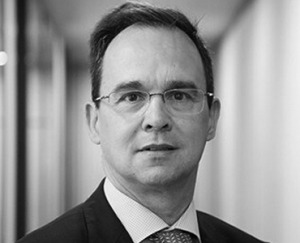
Coorganizer
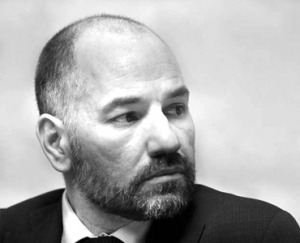
Speaker

Speaker
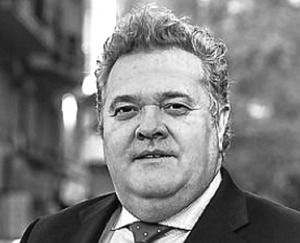
Speaker
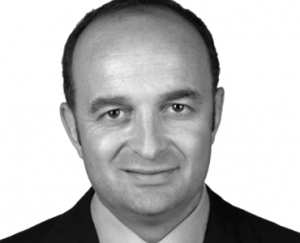
Speaker

Speaker
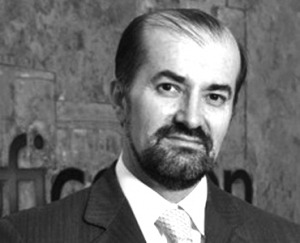
Speaker
IESE Madrid
Coorganizado con Deloitte
Claudia Escobar
IESE Industry Meetings
tel: +34 93 253 43 36


2022 · Energy transition: towards a holistic strategy
2021 · The post-COVID Energy Transition: same goals, different policies
2020 · An Industry in Transition
2019 · Dimensions for an Effective Energy Transition
2018 · Game changers in the Global Energy System
2017 · Energy Architecture in Transition
2016 · Human Well-being, Growth and Energy Access: New Governance for a Unique Challenge
2015 · The Future of Energy: Who Calls the Shots?
2014 · Quo Vadis, Europe? Shedding Light on an Energy Policy beyond the Electrical Sector Reform
2013 · A New Energy Policy as a Global Paradigm Shift Emerges
2011 · The Impact of the Energy Policy on the Sector’s Competitiveness
2009 · A Debate on the Spanish Energy Sector
2004 · Energy Liberalization and Consolidation in Europe
2002 · A Shift Towards the Convergence of Energy Markets
2000 · Mergers and Strategic Alliances: The Creation and Conquest of the Future
Click here to add your own text

A series of top-level conversations on the economic, technical and scientific conditions anticipated in the future of the energy industry.
Energy Prospectives will bring together world figures recognized for their experience, vision and knowledge of the energy industry so they can share their expertise with business owners, regulators, senior managers and academics.
| 09:30 | Opening
• Prof. José Luis Suárez, Director of IESE’s Campus in Madrid. |
| 09:45-11:45 | Workshop: Europe and the Energy Transition
• Álvaro Nadal, Chief Economic and Commercial Counsellor at the Spanish Economic and Commercial Office in London. Former Minister of Energy, Tourism and Digital Agenda of Spain Moderator: Prof. Juan Luis López Cardenete, IESE Business School |
Simultaneous translation in English and Spanish in all sessions.
Speaker
Live Online & On Campus – IESE Madrid
Claudia Escobar
IESE Industry Meetings
tel: +34 93 253 43 36
The 9 Energy Prospective will be offered simultaneously on campus, attendance only by invitation, and online.
The fees for this meeting:
Online: Free
On Campus: Exclusively by invitation
Online: Free
On Campus: Exclusively by invitation
Online: Free
On Campus: Exclusively by invitation


ANDRIS PIEBALGS

JORGE PADILLA

The Naturgy Foundation and IESE have launched Energy Prospectives, a series of top-level conversations on the economic, technical and scientific conditions anticipated in the future of the energy industry.


Will EU reach deep decarbonization goals? Energy Prospectives seminar maps out course for cutting emissions in Europe.

CLAUDIO ARANZADI

The Naturgy Foundation and IESE have launched Energy Prospectives, a series of top-level conversations on the economic, technical and scientific conditions anticipated in the future of the energy industry.
October 26, 2021 · Energy Prospectives – EP#8
June 9 de 2021 · Energy Prospectives – EP#7
March 16, 2020 · Energy Prospectives – EP#6
November 25, 2020 · Energy Prospectives – EP#5
July 14, 2020 · Energy Prospectives – EP#4
October 15, 2019 · Energy Prospectives – EP#3
June 20, 2019 · Energy Prospectives – EP#2
March 14, 2019 · Energy Prospectives – EP#1


